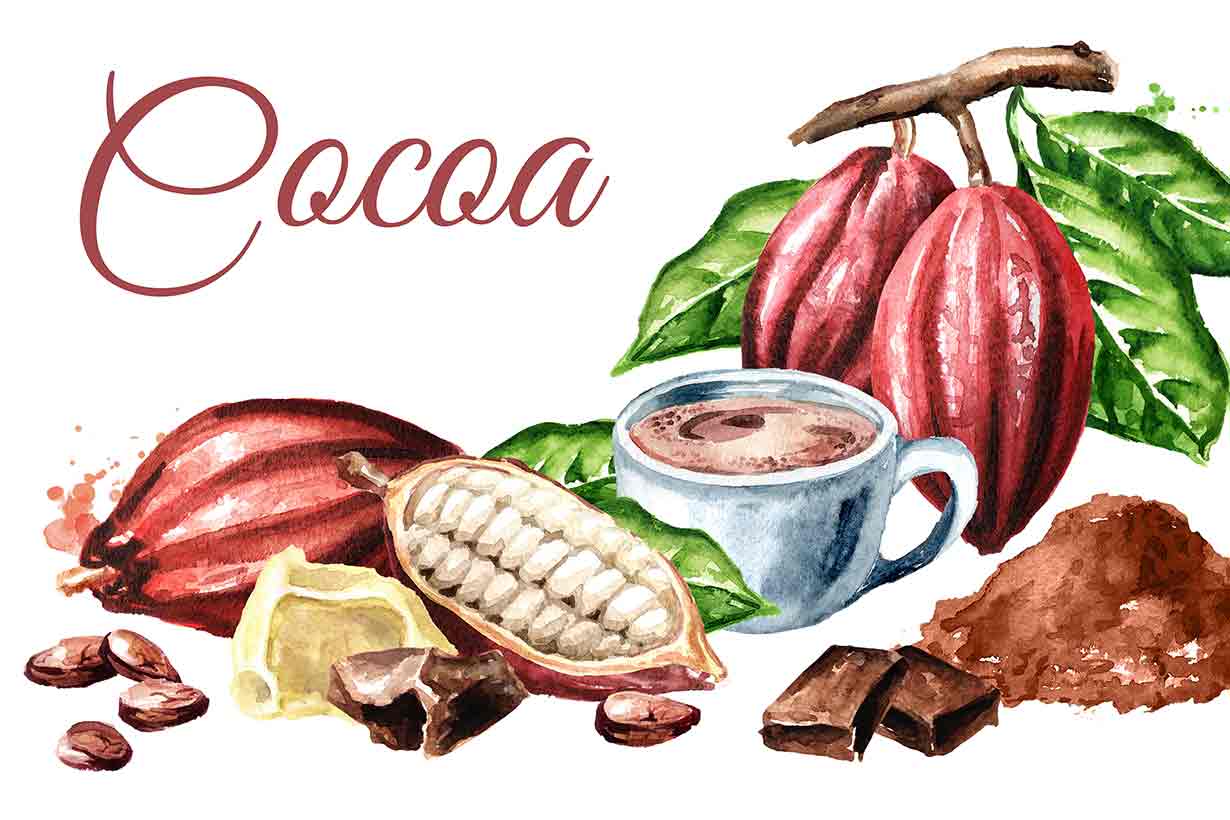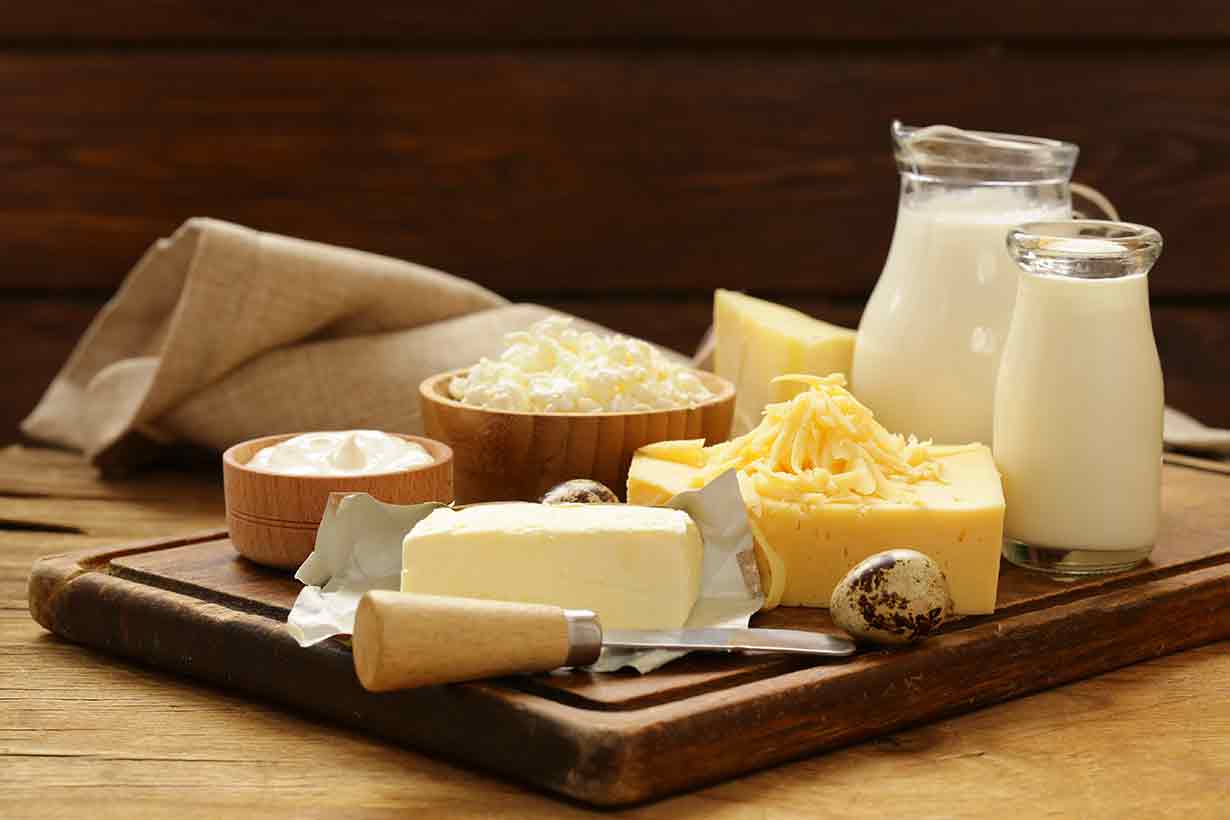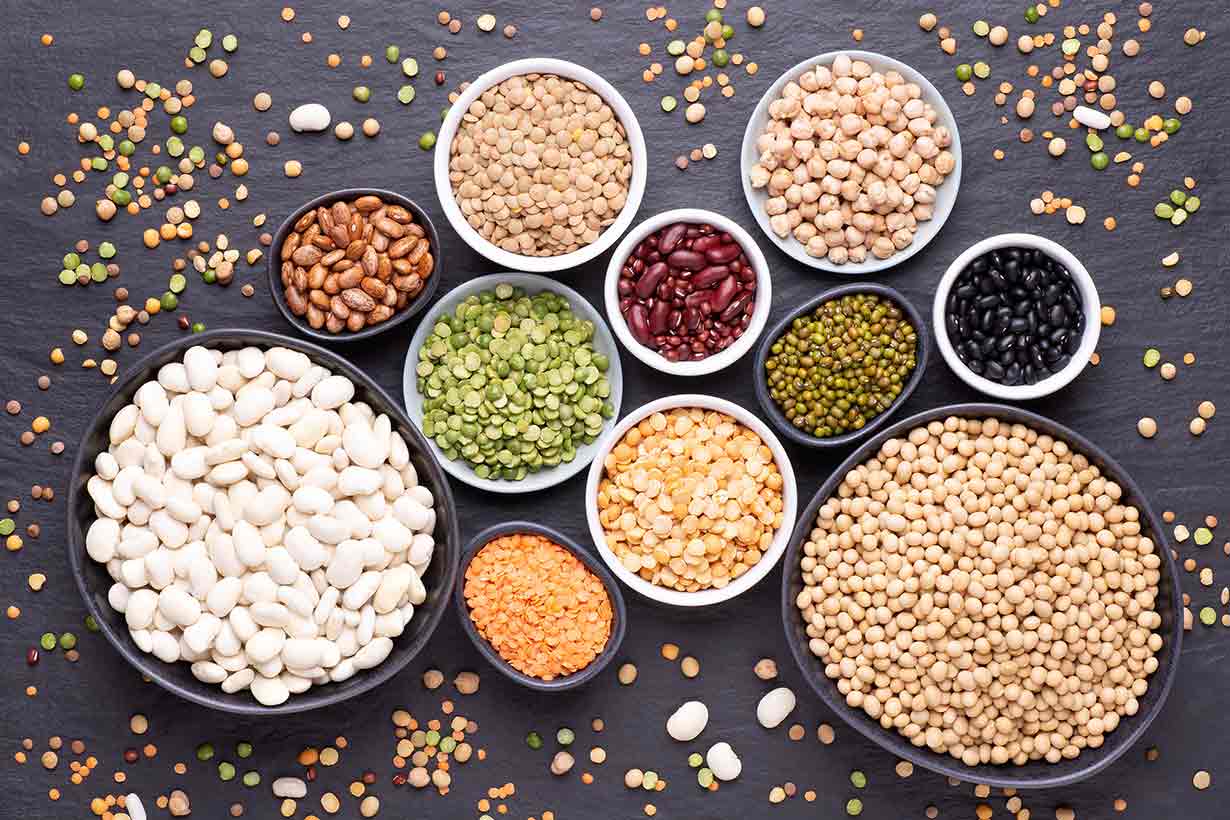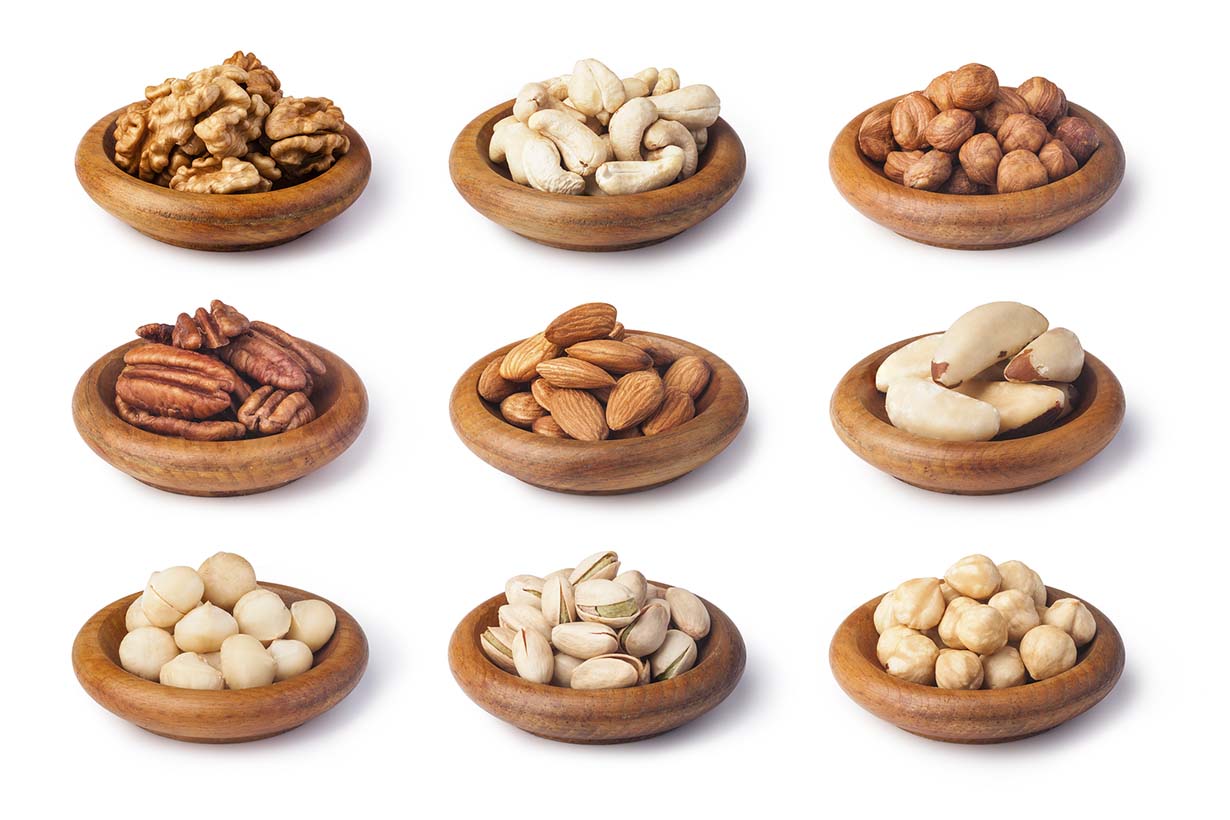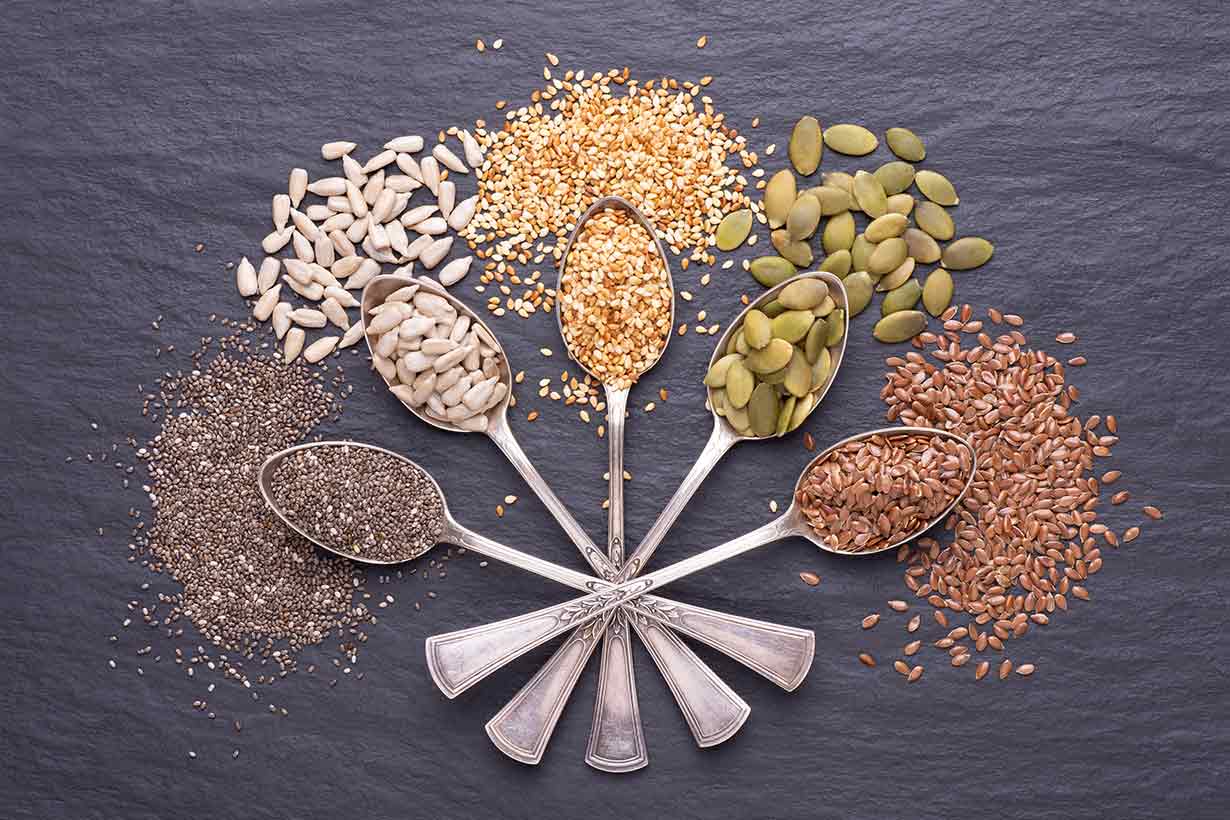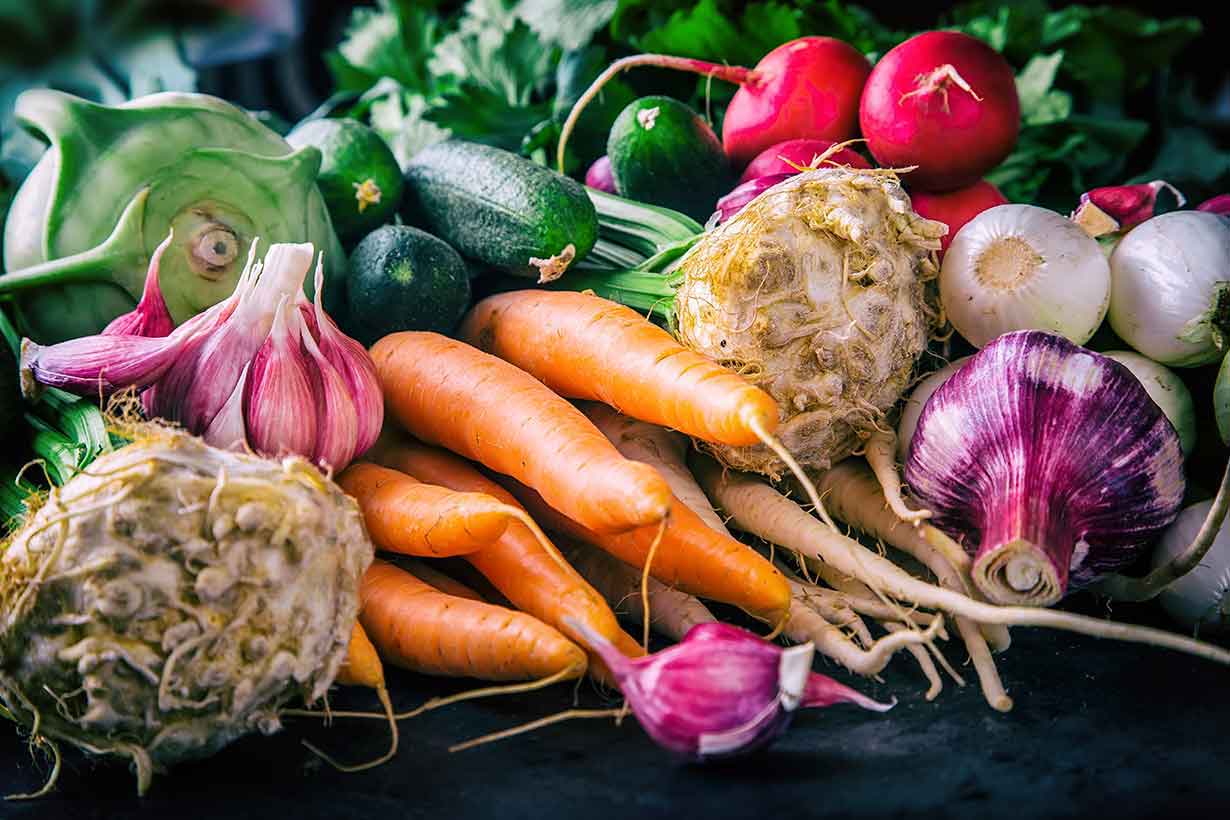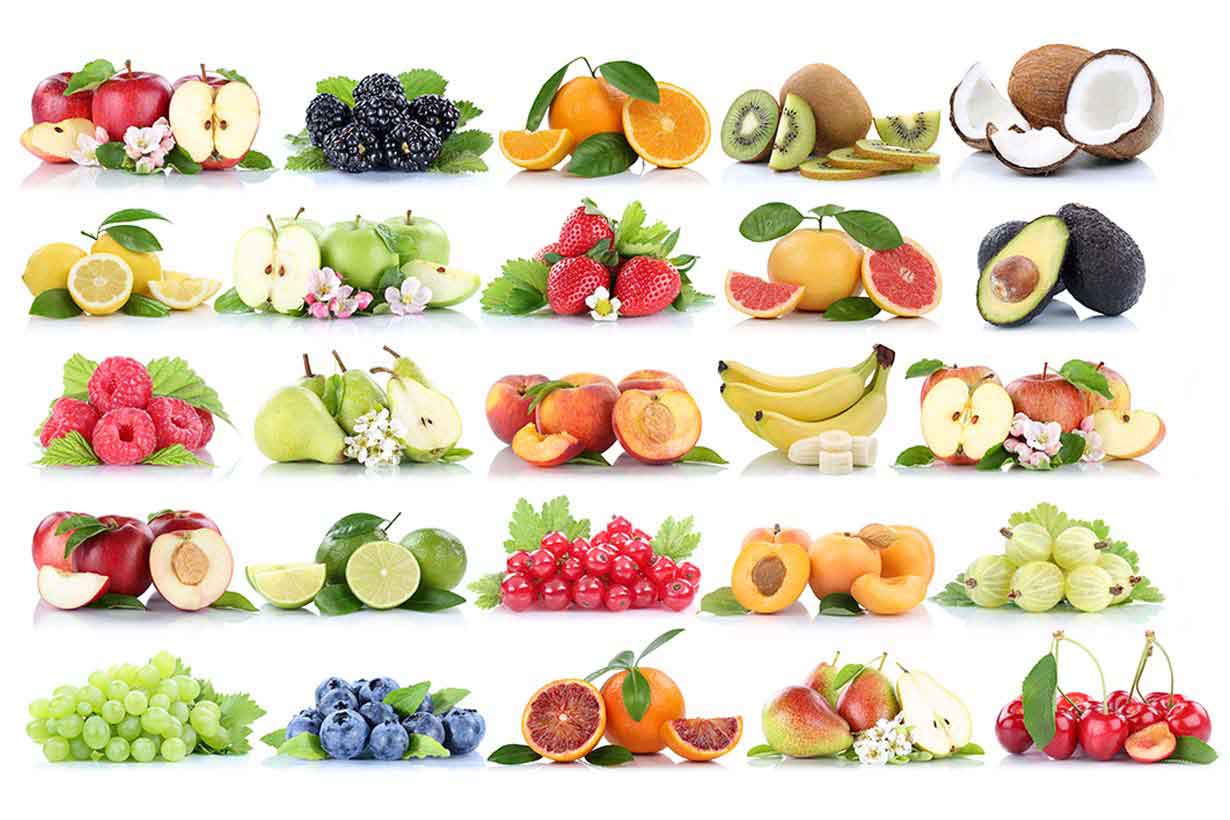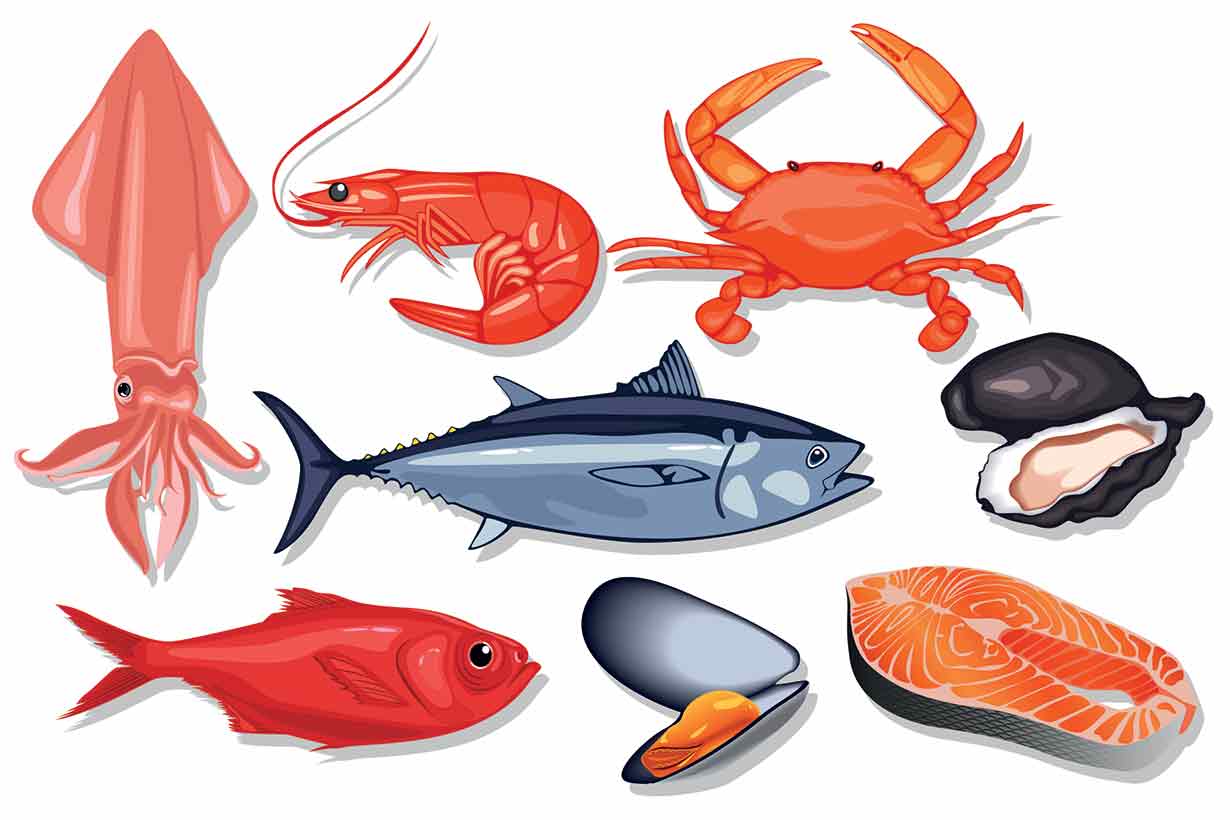Welcome to our list of 20 of the healthiest foods—each chosen for its provision of key nutrients, compelling research-backed benefits, or both.
For each food, you can learn more about why it deserves a place on your plate.
There’s no ranking here, just 20 diverse foods to help you eat well, whatever diet style you prefer.
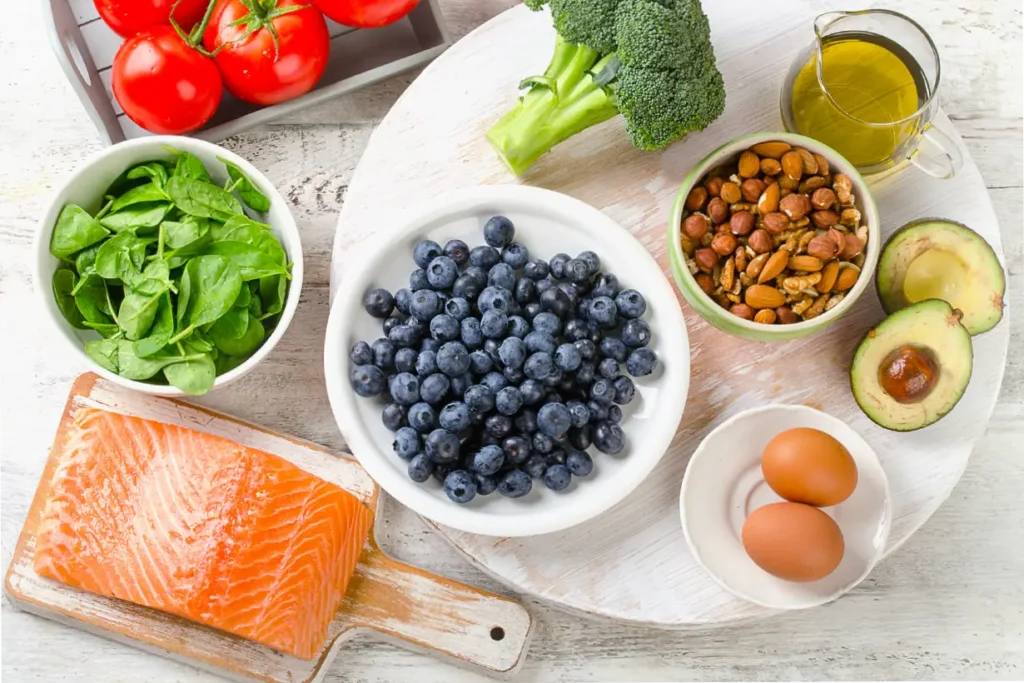
1. Blueberries
Blueberries are widely promoted as a healthy food, and there’s no wonder why.
These little berries are a rich source of (1, 2):
- Fiber
- Vitamin C
- Anthocyanin flavonoids
Additionally, research indicates they may have some intriguing benefits.
For example, a 2024 systematic review and meta–analysis of 11 clinical trials examined the effect of blueberries on cardiovascular function (3).
The review found that blueberries significantly improved flow-mediated dilation (how well blood vessels expand) and lowered diastolic blood pressure.
Learn more about different types of fruit
2. Spinach
Spinach is a leafy green that packs a substantial amount of nutrients, and it is particularly high in (4):
- Fiber
- Folate
- Vitamin A
- Vitamin C
- Lutein
- Nitrate
- Zeaxanthin
A 2015 randomized controlled trial investigated whether spinach could have benefits for heart health based on its high nitrate content (5).
This trial found that, compared to a low-nitrate control (asparagus), daily spinach intake over 7 days significantly lowered blood pressure.
Learn more about different types of vegetables
3. Salmon
Salmon is a common fish that offers a range of nutritional benefits, providing high levels of (6):
- Protein
- Omega-3 fatty acids
- B Vitamins
- Selenium
- Vitamin D
A 2022 systematic review of 19 studies found that consumption of fatty fish like salmon was associated with a 17% lower risk of coronary heart disease (CHD) mortality and a 3% reduced risk of total mortality (7).
These associations were not found with lean fish.
Learn more about different types of seafood
4. Lentils
Lentils are a legume variety that provide high amounts of (8):
- Fiber
- Protein
- B vitamins
- Folate
- Copper
- Iron
- Manganese
- Potassium
A randomized controlled trial published in 2024 demonstrated that consuming 980 grams of cooked lentils per week significantly lowered LDL cholesterol (LDL–C) (9).
Additionally, a 2021 systematic review found that regularly consuming legumes like lentils is linked to reduced blood pressure and a better lipid (cholesterol) profile (10).
Learn more about 25 legume varieties
5. Yogurt
Yogurt is a health-promoting dairy food that contains significant amounts of (11):
- Protein
- B vitamins
- Calcium
- Phosphorus
- Probiotics
A 2022 systematic review involving 896,871 participants found that high intake of yogurt compared to low was associated with a 7% lower risk of all-cause mortality and an 11% reduced risk of cardiovascular disease (CVD) mortality (12).
Find out more about dairy foods
6. Flaxseeds
Flaxseeds are little seeds that are often sold as a milled powder. They contain high amounts of (13):
- Fiber
- Polyunsaturated fat
- Protein
- Thiamin (B1)
- Magnesium
- Manganese
Systematic reviews of randomized controlled trials have demonstrated that flaxseeds can:
- Slightly lower blood pressure when consumed as a habitual part of the diet (14).
- Improve blood sugar and insulin control in people with prediabetes and type 2 diabetes (15).
- Lower LDL cholesterol levels (16).
7. Potatoes
There is a slight misconception that white or “beige” foods are a poor source of nutrients.
However, potatoes pack quite high levels of several important nutrients, including (17):
- Vitamin B6
- Vitamin C
- Potassium
Furthermore, the satiety index of common foods—a landmark study on the satiating (hunger–controlling) properties of food—listed boiled potatoes as the most satiating choice (18).
8. Green Tea
If you’re drinking something other than water, green tea is among the healthiest choices.
This popular tea contains several compounds that may have health benefits, including (19):
- Epigallcatechin gallate (known as EGCG)
- Kaempferol
- Quercetin
A 2023 systematic review of seven observational studies found that green tea may lower coronary heart disease (CHD) risk. The review found that, compared to non-consumers, those drinking a cup of green tea per day had an 11% lower risk (20).
Learn more about different types of tea
9. Avocado
Avocados are full of fiber and healthy fats, as well as a good range of vitamins and minerals.
They contain high amounts of (21):
- Fiber
- Monounsaturated fat
- B vitamins
- Folate
- Vitamin C
- Vitamin E
- Vitamin K
- Potassium
A 2024 systematic review found that avocados may help to lower cholesterol and LDL-C in people with high cholesterol levels (22).
They can also be used to make guacamole, which—depending on how it’s made—can be a healthy condiment.
Learn more about popular condiments
10. Beef Liver
It may not be an expected inclusion on a list of healthiest foods, and many people don’t like organ meats.
However, beef liver is among the most nutrient-rich foods, useful if you need a boost in specific vitamins and minerals.
For instance, 100 grams of beef liver provides more than 100% of the daily value for (23):
- Riboflavin (B2)
- Vitamin A
- Vitamin B12
- Copper
It also provides significant amounts of protein, B vitamins, choline, folate, iron, phosphorus, selenium, and zinc.
Learn more about different types of meat
11. Whole-Wheat Pasta
Most of us know that whole grains are much healthier options than refined carbohydrates, with higher levels of fiber, vitamins, and minerals.
One of the easiest ways to include whole grains in the diet is through whole-wheat pasta—a pasta variety that provides a nutritional upgrade to regular pasta.
Whole-wheat pasta is a significant source of (24):
- Fiber
- Thiamin (B1)
- Niacin (B3)
- Copper
- Manganese
- Phosphorus
- Selenium
- Zinc
A 2023 systematic review published in the American Journal of Clinical Nutrition, involving 1,624,407 participants, investigated how whole-grain consumption is associated with cardiovascular and all-cause mortality risk.
The review found that, per daily 30-gram increase in whole-grain consumption, cardiovascular disease risk fell by 8% and all-cause mortality was 6% lower (25).
12. Almonds
Public health advice consistently recommends including nuts in our diet.
One of the best options is almonds, which provide high levels of (26, 27):
- Fiber
- Protein
- Monounsaturated fats
- Riboflavin (B2)
- Vitamin E
- Manganese
- Flavonoids
- Phenolic acids
A large review of randomized controlled trials found that almonds can lower LDL cholesterol (28).
Two recent systematic reviews of randomized controlled trials—published between 2024 and 2025—also indicate that almonds may:
- Help to lower body weight and subjective hunger (29)
- Lower levels of C-reactive protein (CRP), a marker of inflammation (30)
13. Mushrooms
Not only are mushrooms nutrient-rich, but they also provide some interesting compounds that may benefit our health.
In mushrooms, you’ll find high levels of (31, 32):
- Riboflavin (B2)
- Vitamin D (if the mushrooms were UV exposed)
- Copper
- Selenium
- Ergothioneine
- Beta-glucans
A 2021 systematic review published in the American Journal of Medicine examined the potential cardiovascular benefits of mushrooms, finding (33):
- Mushroom consumption may lower blood pressure and cholesterol.
- However, findings on their impact on cardiovascular risk are inconsistent and not conclusive.
14. Eggs
Eggs offer a broad range of nutrients in one small package, and they are particularly high in (34):
- Protein
- Choline
- Iodine
- Selenium
- Vitamin D
While there used to be concern about the cholesterol content of eggs, dietary cholesterol is now understood to have only a small impact on blood cholesterol for most people.
In this regard, a large 2025 systematic review noted that clinical evidence suggests eggs have a “clinically insignificant” impact on blood cholesterol (35).
15. Coffee
While it only contains low levels of essential vitamins and minerals, coffee contains some interesting phytonutrients that may have benefits.
The most prominent include (36):
- Chlorogenic acid (most abundant)
- Cafestol
- Caffeine
- Kahweol
While coffee can have potentially negative effects in some people, particularly those sensitive to caffeine, large reviews suggest it is a beneficial drink:
- A large review published in 2024 found that moderate consumption of coffee is associated with lower all-cause mortality (37)
- A review of meta-analyses examining various health outcomes found that three to four cups of coffee per day led to reduced risks of cardiovascular and total mortality compared to no coffee (38)
16. Sardines
They don’t enjoy the same popularity as fatty fish like salmon, but sardines offer substantial nutrition for a fraction of the price.
Sardines are rich in (39):
- Protein
- Omega-3
- Niacin (B3)
- Vitamin B12
- Vitamin D
- Calcium
- Phosphorus
- Selenium
A 2021 randomized controlled trial found that sardine consumption—at 200g per week—is beneficial for preventing type 2 diabetes in people with prediabetes (40).
17. Chicken Breast
If you’re looking for the most protein per calorie, then chicken breast comes near the top.
Chicken breast isn’t just high in protein, though, and it provides a rich source of (41):
- Choline
- Niacin (B3)
- Vitamin B6
- Phosphorus
- Selenium
Additionally, a 2023 systematic review found no links between white meat consumption and cardiovascular disease or type 2 diabetes risk (42).
This lack of association is not seen for all types of meat.
Learn more about red versus white meat
18. Extra virgin olive oil
Extra virgin olive oil is often seen as the healthiest—or one of the healthiest—cooking oils.
Research supports this too, with systematic reviews of randomized controlled trials demonstrating that:
- Extra virgin olive oil rich in polyphenols may slightly lower LDL cholesterol (43)
- Polyphenol-rich extra virgin olive oil lowered markers of inflammation and oxidized LDL cholesterol (44)
- According to a meta-analysis of 27 studies, total olive oil intake was associated with a 16% lower risk of cardiovascular disease per 25-gram daily serving (45)
Extra virgin olive oil is a rich source of vitamin E, monounsaturated fats, and polyphenols like oleocanthal (46).
19. Cocoa Powder
There is a big difference between chocolate confectionary and pure cocoa powder.
In fact, just an ounce (28.35 grams) of cocoa powder provides significant amounts of (47, 48):
- Fiber
- Copper
- Iron
- Magnesium
- Manganese
- Phosphorus
- Flavanols
Research has demonstrated that cocoa may have several benefits:
- A 2024 systematic review of controlled trials found that dark chocolate and cocoa reduced markers of inflammation and oxidative stress (49)
- In a 2024 meta-analysis of 31 randomized controlled trials, cocoa intake led to significant reductions in total cholesterol, LDL-C, and fasting blood sugar. Slight reductions in blood pressure were also observed (50)
- An earlier 2016 systematic review of randomized controlled trials found that cocoa flavanol intake “significantly improved” blood lipids (cholesterol) and insulin sensitivity. Flavanols are a type of phytonutrient found in cocoa (51).
Learn more about cocoa products
20. Soybeans
Soybeans are a rich provider of (52):
- Fiber
- Polyunsaturated fat
- Protein
- Riboflavin (B2)
- Vitamin B6
- Folate
- Vitamin K
- Iron
- Magnesium
- Manganese
- Phosphorus
- Potassium
In short, they’re full of essential vitamins and minerals. There are various nutrient-rich foods made with soybeans, including:
- Edamame (immature, green soybeans)
- Mature soybeans (a dried legume)
- Tempeh
- Tofu
A 2022 systematic review of clinical trials demonstrated that soy products may improve cardiovascular health markers in patients with type 2 diabetes (53).
Learn about fermented soy foods
Summary
Not all foods in this article will be the right fit for everyone, considering factors like dietary preferences, ethical beliefs, and allergies.
However, incorporating a variety of the foods listed can help to build the foundation of a healthy diet.
From protein-rich, low-calorie options to foods full of fiber and minerals, each offers something a little different.

